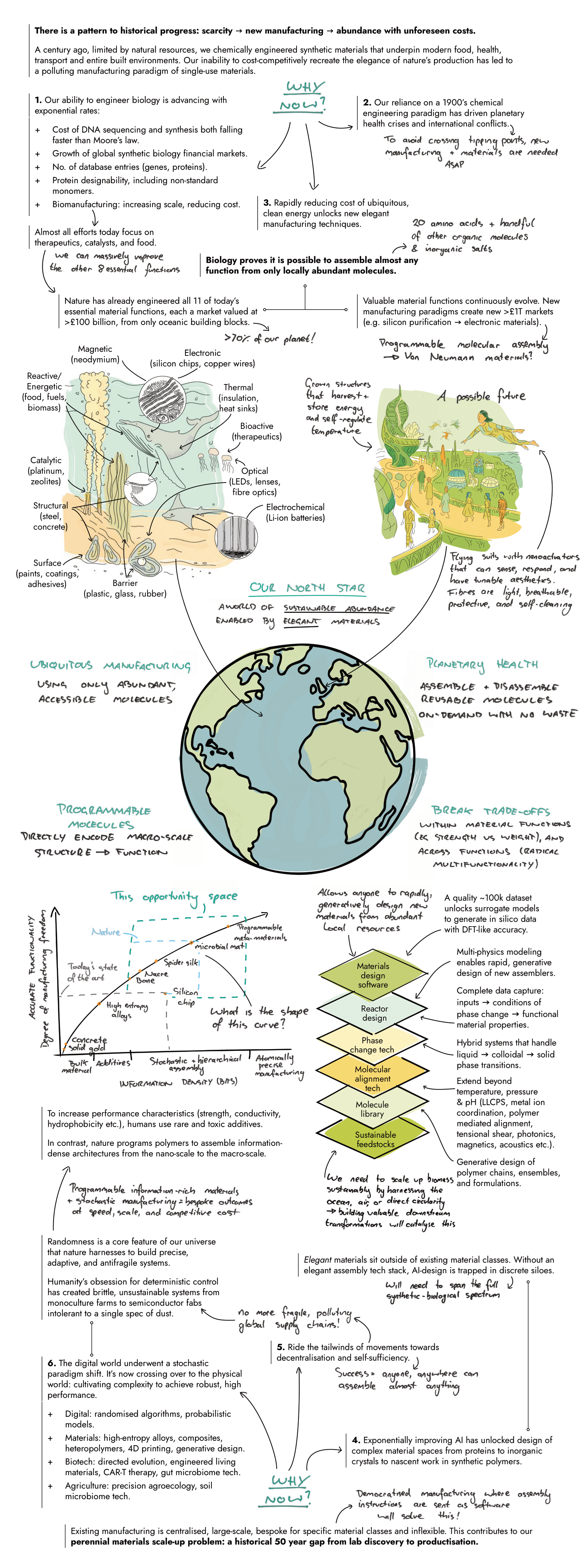What if we could create a world of sustainable abundance by revolutionising our manufacturing paradigm?
Defined by our Programme Directors (PDs), opportunity spaces are areas we believe are likely to yield breakthroughs.
In Manufacturing Abundance, we're exploring how the ability to assemble molecules into bespoke materials could solve today’s great challenges and finally unlock sustainable abundance.
Beliefs
The core beliefs that underpin this opportunity space:
We will assemble limited sets of available molecules into a limitless range of functionality, without cost to planetary health.
Programmable polymers will construct materials, from the nanoscale to the macroscale, with structures that deliver tailored performance with unprecedented accuracy.
Ubiquitous clean energy will unlock a new manufacturing paradigm and, in turn, be catalysed by it: cost-competitive, precise performance arising from structure (vs. composition) and stochastic (vs. deterministic) assembly.
To unlock ubiquitous manufacturing, we’ll need a new biotic-abiotic tech stack that lets us programmably assemble matter like software → creating resilient societies, unleashing innovation at scale, and shrinking lab-to-market cycles from decades to days.
Programme development: Universal Fabricators
We are in the process of building a multi-year R&D programme within this space. We have now published our thesis – Universal Fabricators – which outlines our latest thinking.
Sign up for updates
Stay up-to-date on our opportunity spaces and programmes, be the first to know about our funding calls and get the latest news from ARIA.


